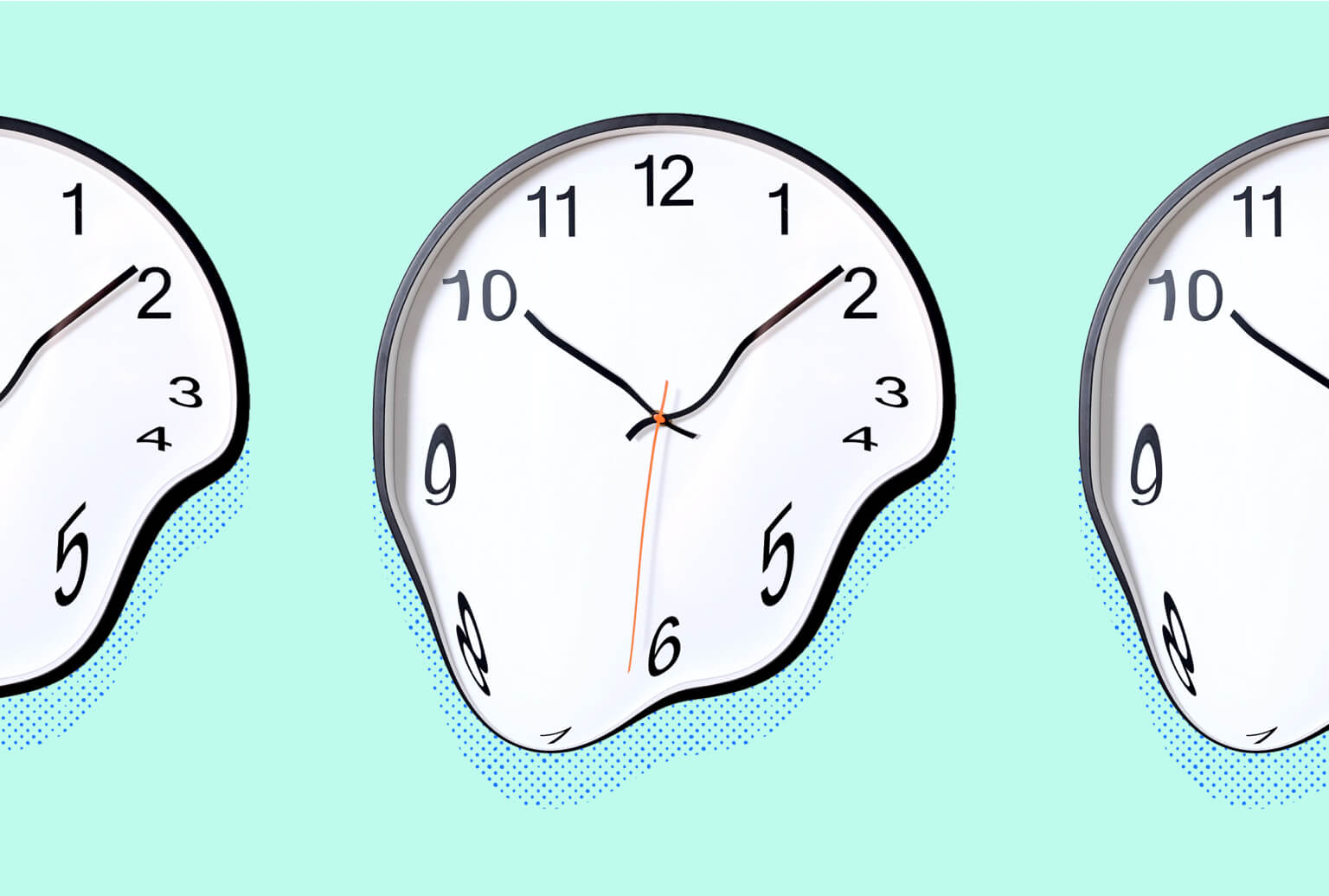As a kid, I remember a sleepover at my friend, Darrin’s house. We were playing with Barbies. (Mine, if I remember correctly, was overly career-driven and had a really awesome Corvette.) It was the middle of the afternoon, and suddenly, just like that it was four in the morning. It felt like only seconds, but it had been hours. Where had that time gone?
I also remember studying for a particularly grueling Organic Chemistry test. No matter how long I sat there working through the ideal equation, no time was passing. It felt like hours, days, maybe even decades, but each time I looked at the clock, it was only five minutes later.
Science has proven that there are two constants in the universe: time and space. But what if time isn’t actually constant? What if it moves faster or slower depending on our personal experience? And what does this mean when we are learning?

Time is Elastic, Like a Rubber Band
Time stretches and contracts around our experiences.
As noted in Jordana Cepelewicz’s September 2020 Quanta Magazine article, “Emotions, music, events in our surroundings and shifts in our attention all have the power to speed time up for us or slow it down. When presented with images on a screen, we perceive angry faces as lasting longer than neutral ones, spiders as lasting longer than butterflies, and the color red as lasting longer than blue. The watched pot never boils, and time flies when we’re having fun.”
Time is variable. Our perception of time changes according to our circumstances and our dopamine response to those circumstances. Dopamine neuron activity reflects and can directly control the judgment of time. The more pleasing the experience, the larger the dopamine response causing time to move faster.
“Everyone knows the saying that ‘time flies when you’re having fun,’” said Sam Gershman, a cognitive neuroscientist at Harvard University. “But the full story might be more nuanced: Time flies when you’re having more fun than you expected.”
Let’s take this even one step further, time flies when you are in the flow — fully immersed in a feeling of energized focus, full involvement, and enjoyment in the process of the activity.
Why does this matter?
Dopamine Isn’t Just Connected to Time
Dopamine is better known for its function in the reward and reinforcement learning processes. When we receive an unexpected reward, also known as a prediction error — we experience a rush of dopamine, which teaches us to continue pursuing that behavior in the future.
But a reward doesn’t have to be unexpected to work. We can condition ourselves to associate certain stimuli or experiences with positive rewards and ultimately, modify our behaviors.
For example, I used positive reinforcement training to teach my dog that she doesn’t have to freak out every time she sees another dog on our walks. She gets treats when she looks at a dog but doesn’t bark or act out. Then, if she passes a dog politely, she gets a piece of turkey or hot dog. The higher value treat (turkey or hot dog) acts as a delightful surprise (a prediction error). The regular treats for when she sees another dog led her to condition her behavior positively to get more treats.
The dopamine connection between reinforcement learning and time means we can condition ourselves to get “in the flow.”
But, how can we do that, especially when we are struggling to focus or learn something new?
A Few Tips to Help You Get in the Flow
1. Focus on the Task at Hand
This is a hard one – stop multitasking. Multitasking is one of the quickest ways to inhibit your ability to focus – one of the key components being in the flow.
2. Try a Technique
Consider using a timed studying technique like the Pomodoro Technique to give yourself clear periods of focus, set breaks, and rewards. This can help train your brain to get in the flow without being overwhelmed or distracted.
3. Switch Things Up
You don’t have to study the same way every time. Switch things up to make studying more interesting. Make it fun by adding variety. For example, instead of reading a book, watch a video or listen to a podcast on the subject.
4. Food is Your Friend
Your brain needs fuel so remember to eat. It’s extremely hard to focus when you’re hungry. Your brain needs fuel to stay on task.
So there you have it – think of time like a strange rubber band.

 learning science
learning science